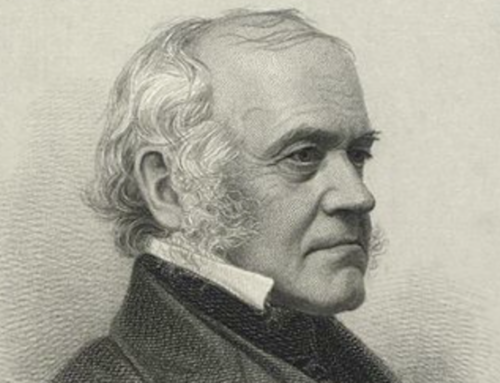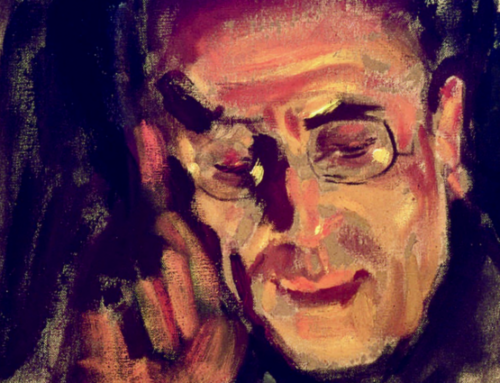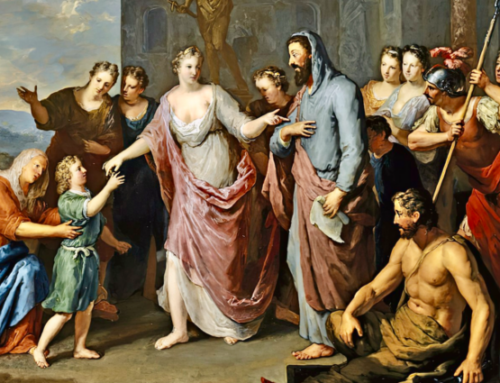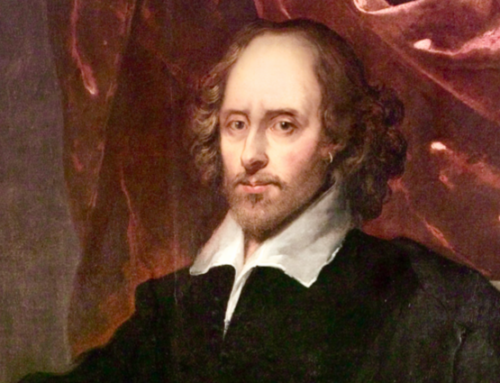Having lost both their identity as a people and their assurance of a better future, Americans suffer a profound uncertainty and desperation from which they cannot easily free themselves and from which they may not soon recover.
I.
 Americans like to think of their country as unique. For a time it was. Americans were the first people to declare their independence from a European power. By 1826, within fifty years of the Declaration of Independence, most of the former colonies in the Western Hemisphere had done so. Within two hundred years, most of the former colonies throughout Asia and Africa had also become independent. At the moment of its founding in 1789 (not in 1776), the United States was the only democratic republic in the world. Less than a century later, it no longer enjoyed that exclusive status.
Americans like to think of their country as unique. For a time it was. Americans were the first people to declare their independence from a European power. By 1826, within fifty years of the Declaration of Independence, most of the former colonies in the Western Hemisphere had done so. Within two hundred years, most of the former colonies throughout Asia and Africa had also become independent. At the moment of its founding in 1789 (not in 1776), the United States was the only democratic republic in the world. Less than a century later, it no longer enjoyed that exclusive status.
It is ironic, even paradoxical, that American influence spread throughout the world just as the United States was becoming less distinctive. For only during the last twenty-five years of the nineteenth century did Europeans begin to adopt American ideas, manners, and institutions. Earlier, European and even South American liberals, democrats, and radicals found inspiration less in the American War of Independence than they did in the French Revolution. At the same time, Americans such as Thomas Jefferson, who sympathized with French efforts to destroy their ancient form of government and to discard their hierarchical order of society, wished to prevent a similar revolution from taking place in the United States. To the extent that it was possible, Americans sought to isolate themselves from the upheavals and conflicts of Europe, or at least to avoid having to take a side. Isolation and neutrality defined the American outlook until the late nineteenth century. The Founders had no wish to intervene abroad, let alone for the United States to dominate the world.
Yet, John Winthrop’s image of the New World as a “City Upon a Hill,” serving as an inspiration to mankind, continued to haunt the American imagination. Then as now Americans tended to ignore Winthrop’s admonition that if they disavow or betray their covenant with God and shall:
deale falsely with our god in this worke we haue vndertaken and soe cause him to withdrawe his present help from vs, wee shall open the mouthes of enemies to speake euill of the ways of god and all professours for Gods sake; we shall shame the faces of many of gods worthy seruants, and cause theire prayers to be turned into Cursses vpon vs till wee be consumed out of the good land whether wee are goeing . . . . If our heartes shall turne away soe that wee will not obey, but shall be seduced and worship other Gods our pleasures, and profits, and serue them; it is propounded vnto vs this day, wee shall surely perish out of the good Land whether wee passe over this vast Sea to possesse it.[1]
The community that the Puritans sought to establish in America was not securely rooted in a particular soil nor was it fully united by ties of family, church, government, and tradition. It was a new community, displaced and set down in a new land, without a sure political authority, social identity, or ecclesiastical presence. In his sermon aboard the Arabella, Winthrop hoped to unify this disparate company through a shared devotion to Christian love. They were, he said, a chosen people whom God had endowed with a “speciall Commission” in history, an “errand into the wilderness,” that would make them an example (a “Modell”) for the rest of the world to follow.
Implicit in Winthrop’s vision was the revolutionary idea that government and society were not fixed and immutable. English political, economic, social, and religious institutions had sunk into corruption and vice. But in the New World to whence they had come, the men and women who had crossed the Atlantic might revitalize and purify them. Human beings were neither hostages to nor victims of the past. They could liberate themselves from its dictates and fashion a new order in adherence with the revealed word of God. But Winthrop also sounded the note of pessimism, and even of despair, that has ever since resonated through American thought. If the experiment failed, if America succumbed to the deadly sins that had ruined Europe, there would be no second chances. The City Upon a Hill would then become a curse, a testament to human folly and wickedness carrying the world with it into darkness.
“The last, best hope of earth” in Abraham Lincoln’s memorable words, the United States was the alternative to Europe. By the time Americans celebrated the one hundredth anniversary of the Constitution, most had come to assume that it was the destiny of the United States not to serve as a touchstone and a lodestar but as an instrument in the hands of God to extend freedom throughout the world. In a speech delivered at the inaugural ceremony of the Columbian Exposition in Chicago on October 21, 1892, Chauncey M. Depew, the Republican Senator from New York, exclaimed: “This day belongs not to America, but to the world. The results of the event it commemorates are the heritage of peoples of every race and clime. We celebrate the emancipation of man.”[2] It was long a boon to Americans that, in their mission to enlarge the blessings of liberty, the United States came into being during the Enlightenment, at the very pinnacle of the Modern Age. There is now every reason to think that this former advantage has become an encumbrance and a disability.
Americans historically believed that they could not only change but that they could also improve the world. Change need not be random and aimless, beyond the power of human control. It could be meaningful and progressive. Americans could become and remain the undisputed masters of nature and history. So it was. But it is equally clear that decades of material progress and economic affluence have hindered intellectual growth and spiritual maturity. The peril contemporary Americans face is that the ideas and values of the Enlightenment have become less relevant and more antiquated. Against the moral catastrophe of the twentieth century, the rationalism of the Enlightenment offered feeble protection. Liberal humanism alone could not curtail the most destructive impulses of mankind. The Enlightenment suffered a fatal wound in the trenches and on battlefields of the Great War. The war so disoriented Western Civilization that Europeans no longer shared a common frame of reference for the present or a common understanding of the past. They lost confidence in reason and became estranged from their intellectual, moral, and spiritual heritage. From this existential crisis of consciousness and being, Americans remained largely immune—until now.
More than a century after the First World War, the United States has caught up with Europe; Americans have embraced many of the worst inclinations and practices of Europeans at that time. As a consequence, Americans are finding it increasingly difficult to stay the decline of their institutions, whether political, legal, social, administrative, educational, or religious. And because the United States was the progeny of the Enlightenment and the child of the Modern Age, Americans find themselves with few resources on which to draw to meet the growing emergency now that the Enlightenment is in permanent decline and the Modern Age has passed away. Painful, even violent, struggles lie in the future as Americans are constrained to forsake many of their cherished assumptions and principles, to change the essential beliefs that have molded their identity and distinguished their nation. Many Americans, including a number who assailed the Capitol on January 6, have asserted that it is 1776 and the United States is again poised on the threshold of a war for independence.[3] No. Historical conditions in the United States more closely resemble those that prevailed in Europe, especially in Germany, between 1923 and 1933. Americans may be teetering on the abyss of a very different kind of revolution.
II.
The past teaches no lessons, but occasionally it issues a warning. Before the First World War, Europeans had expected society to become more rational, more democratic, more just, and more humane. Industry would increase wealth and material abundance would enable ever more persons to share in the bounty. Superstition, tyranny, prejudice, violence, and poverty would disappear. In the aftermath of war, Europeans questioned the value of science and technology, which they thought responsible for unleashing destructive forces that human beings could not control. They abandoned the hope that reason could eradicate not only ignorance but also hatred and rage. Progress itself seemed illusory. Decline became irreversible and death inevitable. The symptoms of degeneration, which few had recognized, were evident even before the war. The outward achievements of Europe had masked an inner turbulence that was propelling civilization in the West toward disaster.[4]
Belief in inexorable and unlimited progress was the most persistent and treacherous idea to emerge from the Enlightenment. It rested on mistaken assumptions about human nature that denied the possibility of sin and the reality of evil. No people have been more beguiled by this prospect than Americans, who have long considered themselves immune to both the frailties of the human condition and the misfortunes of history. Such has been the underpinning of “American Exceptionalism,” the conviction that Americans are the Chosen People of God. A decade after the end of the Great War, D. H. Lawrence began Lady Chatterley’s Lover by remarking on the tragedy that his generation had endured. “Ours is essentially a tragic age,” he asserted:
so we refuse to take it tragically. The cataclysm has happened, we are among the ruins, we start to build up new little habitats, to have new little hopes. It is rather hard work: there is now no smooth road into the future: but we go round, or scramble over the obstacles. We’ve got to live, no matter how many skies have fallen. [5]
Ours, by contrast, is a farcical and absurd age. We have become in many respects a superficial, immature, and frivolous people for whom even the most serious matters soon enough come to resemble a mindless charade. We regard play acting as reality and dismiss reality as a sham. Millions embrace preposterous conspiracy theories and deny obvious truths. The minds and imaginations of children, and of adults who think like children, are enthralled by wizards and demons, superheroes and monsters, magic, sorcery, and the paranormal. Because the mechanical worldview and progressive ideology of the Enlightenment, the foolish yet resolute conviction that the world is rational, no longer works, the United States cannot avoid the rot that a century ago had begun to torment Europe. Richard Weaver, among the most discerning critics and neglected prophets of our time, understood as much when he wrote:
There is ground for declaring that modern man has become a moral idiot. So few are those who care to examine their lives, or to accept the rebuke which comes of admitting that our present state may be a fallen state, that one questions whether people now understand what is meant by the superiority of an ideal. One might expect abstract reasoning to be lost upon them; but what is he to think when attestations of the most concrete kind are set before them, and they are still powerless to mark a difference or to draw a lesson? For four centuries every man has been not only his own priest but his own professor of ethics, and the consequence is an anarchy which threatens even that minimum consensus of value necessary to the political state [6]
Having lost both their identity as a people and their assurance of a better future, Americans suffer a profound uncertainty and desperation from which they cannot easily free themselves and from which they may not soon recover.
III.
Is the United States about to sink into a new age of barbarism in which, as Yeats wrote, “the best lack all conviction, while the worst are full of passionate intensity; will “mere anarchy” again “be loosed upon the world?”[7] As in Europe at the beginning of the twentieth century, Americans are now in the process of institutionalizing their political hatreds. They show no commitment to the pursuit of justice or the quest for truth. They scorn the other, not only the foreign-born but all who disagree with their opinions and attitudes. They extol cruelty. They revere the tribal and deify the parochial. They demand action. They admire instinct, will, and power while disparaging intelligence, moderation, and compromise. They glorify conflict and welcome the fight. The logical outcome of these developments is the emergence of a people conditioned to brutalize and to tolerate brutality.
Pundits repeat that the United States is coming to resemble the nightmare world of 1984. They have a point, as far as it goes. There are those today who embrace without question a political orthodoxy and adjust their views to accommodate every reversal and contradiction that sustaining belief demands. Propaganda and falsehood spread by various social media platforms manipulate their thinking in ways that keep them both enthralled and subservient. These men and women are surrendering their capacity for independent thought and refined judgment. They have dispensed with any conception of objective truth and instead believe whatever version of reality serves the needs and interests of the moment. Beguiled and deluded, such minds are prepared to embrace destructive myths about the race, the leader, the party, and the state.
The coming reality may be even worse than the experts imagine. If it is, the literary forebear will not be George Orwell but Franz Kafka. In the world Kafka imagined there is no order or stability at all. Human beings cannot find coherence or meaning in life. They suffer oppression, injustice, and cruelty as a matter of course. Their ordeal constitutes the only parameters of existence. Amoral leaders exercise power without limit and victims cooperate in their own destruction. Josef K., for example, the protagonist of The Trial, is arrested and executed without ever knowing why. He “lived in a country with a legal constitution, there was universal peace, all the laws were in force; who dared seize him in his own dwelling?” [8] But like everyone else, Josef K. was the plaything of forces too enigmatic and irrational to master or even to understand. In his brooding pessimism, Kafka offered no consolation. His was a galaxy of lost souls.
Their story has been 600 or 700 years in the making. During the Middle Ages order derived from a society that classified and situated individuals in their roles as lord and priest, craftsman and serf. Birth determined status. A Christian worldview gave purpose to life and meaning to death. Independence from such authority was among the hallmarks of the Modern Age. Renaissance humanists celebrated the prospect of emancipation; the philosophes reaffirmed their enthusiasm. The most important unintended and detrimental consequence of this otherwise salutary development was what the German social theorist and psychoanalyst Erich Fromm called the “burden of freedom.” Frightened and distraught men and women yield themselves to a person whom they regard as “overwhelmingly strong,” exchanging the terrors of freedom for the consolations of security. [9]
No “Dark Age” descended on Europe in the fourteenth century when medieval institutions began to falter. But the 300 years between the Renaissance and the Enlightenment gradually eclipsed the world view of the Middle Ages. Medieval philosophy rested on a belief in the existence of God and the truth of divine revelation. It rejected the fundamental premise both of ancient Greek and modern thought: the autonomy of reason. Mind by itself, without divine intervention and guidance, could fathom the universe and all that it contained. Mathematics became the language of reality and rendered it comprehensible. Hope for a better future resided with science. There was no authority save reason. Unlike ancient or modern thinkers, the Scholastics determined that reason alone could not formulate coherent and unified ideas of nature, humanity, society, and God. As the German philosopher Ernst Cassirer explained, for the medieval mind:
neither science nor morality, neither law nor the state, can be erected on its own foundations…. Reason is and remains the servant of revelation; within the sphere of natural intellectual and psychological forces, reason leads toward, and prepares the ground for, revelation.[10]
For thinkers during the Middle Ages, understanding this world depended on the acceptance of a supernatural and supertemporal order.
Ironically, the Middles Ages, subject as they were to the omniscient mind and omnipotent will of God, focused entirely on the drama of human history: creation, the fall, suffering, and redemption. The unfolding destiny of mankind gave intention to existence. When that destiny was complete, Christ would return, the universe would end, and human beings would dwell in the house of the Lord forever. In the modern universe, by contrast, human beings are no longer the beloved children of God and the earth is but a speck adrift in an infinite cosmic sea. The universe is either indifferent or unresponsive to human entreaties. Human beings are free but they are alone.
Both the medieval and the modern past speak less loudly and less authoritatively to the present. Faith in Almighty God and faith in infallible reason seem equally remote. Whether based on reason or revelation, universal standards of judgment, truth, virtue, even reality do not enjoy unquestioned acceptance. Nothing is self-evident. The past no longer directs men and women about how to create a culture, society, and government that will enhance freedom but end isolation and maintain order. It does not afford the means to overcome feelings of powerlessness and insignificance. Nor does it impart the aptitude for critical thought without at the same time intensifying an unbearable doubt.
Jacques Barzun affirmed that ours is a “peculiarly restless” age in which there is no shortage of “energy or talent or moral sense. But we have lost the sense of Possibility.” The once rich soils of Western culture have grown barren and sterile. “The forms of art as of life seem exhausted,” wrote Barzun, “the states of development have been run though. Institutions function painfully. Repetition and frustration are the intolerable result.”[11] Americans of the twenty-first century could not have hoped forever to avoid the consequences of this cultural decay, this spiritual degeneration, which has afflicted Europe for more than one hundred years. The historical moment is portentous. It invites and cultivates nihilism. If there are no principles of truth, morality, and justice that emanate from God or derive from reason then, as Friedrich Nietzsche discerned, anything and everything is permissible. [12]
In their attempt to preserve order and to find meaning, Americans can trust to inertia no longer. Civic virtue is breaking down and American society is not a machine that will go by itself, without attention and repair. If the American people cannot rely on faith or reason to guide them, they must adopt a moral humility and an intellectual reserve, acknowledging that no one has a monopoly on righteousness or truth. If they wish to go on living, not as barbarians but as civilized human beings, they have no choice except to reconsider the propensity to look upon their enemies, foreign and domestic, as irredeemably evil and themselves—their country, their party, their tribe—as everlastingly good. They must suppress the desire to annihilate all with whom they disagree, all with whom they quarrel. They must have the discipline to restrain their bitterness and animosity. They must end their resentment of all that impedes their ambitions and interferes with their pursuit happiness. They must discard such outworn ideals as American Exceptionalism, which by obscuring reality and disguising malevolence, have become not only useless but also harmful to themselves and others. They must cease trying to revive hopeless objectives and to transform them into creeds sustained and justified by violence. They must admit that America is not, and never was, a shining City Upon a Hill. They must want to heal themselves and to elevate their souls. The fate of the nation turns on the success or failure of their efforts.
[1] John Winthrop, “A Modell of Christian Charity” (1630) in David A. Hollinger and Charles Cappers, eds., The American Intellectual Tradition, Volume I, 1630-1865, Fifth Edition (New York, 2006), 14-15.
[2] “The Columbian Oration” in Joseph Benson Gilder, ed., The Life and Later Speeches of Chauncey M. Depew (New York, 1894), 1.
[3] Anne Appelbaum has elucidated this position in “Coexistence Is the Only Option,” The Atlantic (January 20, 2021) https://www.theatlantic.com/ideas/archive/2021/01/seditionists-need-path-back-society/617746/
[4] The Nazis were among those to appreciate opportunity in this melancholy outlook, promising to build a new and vibrant civilization on the wreckage of the old.
[5] D. H. Lawrence, Lady Chatterley’s Lover, (Mineola, NY, 2006; originally published in 1928), 1.
[6] Richard M. Weaver, Ideas Have Consequences (Chicago, 1948), 1-2.
[7] William Butler Yeats, “The Second Coming,” in The Collected Poems of W. B. Yeats (New York, 1956), 184-185.
[8] Franz Kafka, The Trial, trans. by Willa and Edwin Muir (New York, 1957), 7.
[9] Erich Fromm, Escape from Freedom (New York, 1965; originally published in 1941), 173, 246.
[10] Ernst Cassirer, The Philosophy of the Enlightenment (Boston, 1955), 40.
[11] Jacques Barzun, From Dawn to Decadence: 1500 to the Present, 500 Years of Western Cultural Life (New York, 2000), xx.
[12] See Friedrich Nietzsche, On the Genealogy of Morals, ed. by Robert C. Holub, trans. by Michael A. Scarpitti (New York, 2014; originally published in 1887).
The Imaginative Conservative applies the principle of appreciation to the discussion of culture and politics—we approach dialogue with magnanimity rather than with mere civility. Will you help us remain a refreshing oasis in the increasingly contentious arena of modern discourse? Please consider donating now.
The featured image is courtesy of Pixabay.







Mr. Malvasi,
I cannot tell whether you are speaking ironically (tongue planted firmly in your cheek) or not? This is a “Conservative” website, yet you seem to argue that all is lost. The past cannot be a guide to the future. Nothing can serve as foundational. America was not (and cannot be) different, let alone “exceptional”. There are no “self-evident” truths. All is permissible, so get used to it. Everyone is “right”; there are no “wrongs”. Pretty depressing! I hope we never get to where you think we are.
I do not see hopes of reviving our sense of being exceptional and wishing to be regarded as the city on a hill as disguises of malevolence. These hopes are not opposed to being civilized nor do they necessarily tend toward violence to anyone else. Yes, we have failed at faith and reason, but we won’t give up there.
Dr. Malvasi never uses the pronoun “we” in this essay. Is he not included? We must pull him in for help in our efforts to heal!
This is an exceptionally written piece. I haven’t been this inspired since my college philosophy classes.
Many good thoughts. The “shining city on the hill “ was a northern ideal, one that led to the dissolutions of the Puritans because perfection is unattainable. The Puritans ideal (heresy) led to their demise but the ideal was picked up by the Universalist Unitarians and then by the progressives who began their “enlightened” march to the perfect society (LBJ-The Great Society). The South maintained their Christian sense of fallibility which is why the Framers of the Constitution were full aware of the vulnerability of human beings to create evil if given too much power (Lord Acton: “Power corrupts. Absolute power corrupts absolutely.”) and put the checks and balances to create boundaries to prevent the abuse of power. Of course the Framers also knew and said that only a religious and moral people could live by it. When human kind becomes addicted to its own sense of personal egocentricity. the checks and balance es can be roughshod over as they have now.
The problem is that Marxists do not listen to others nor do they compromise. The god of the Marxists, Xiden et. al, is power and control masked by their delusions of a perfect society. Marxism is not compatible with a Constitutional government. They will never quit. So where does that leave us?
Nullification? Secession? Or an unthinkable civil war? Or a surrender into total depravity of the Leviathan of Communism where evil will be unleashed in exponential terms. Communism has never worked because a group of egocentric elitists have no moral core to even begin creating it as their efforts are for their own personal ends.
Breathtakingly clear, relevant, and urgent in tone and solid historical references.